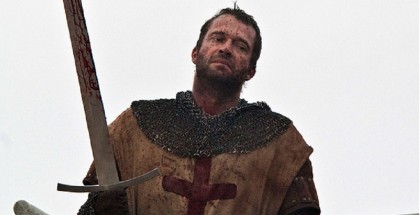VOD film review: Ida
Review Overview
Performances
9Script
9Unusual camera angles
9Matthew Turner | On 26, Sep 2014
Director: Pawel Pawlikowski
Cast: Agata Trzebuchowska, Agata Kulesza, Dawid Ogrodnik
Certificate 12
Directed by Pawel Pawlikowski (Last Resort, My Summer of Love) and shot in pristine black and white, Ida is set in early 1960s Poland and stars Agataas Anna, a young novice who has spent her entire life in the isolated convent where she was placed as a baby. On the eve of taking her vows, she is ordered by her Mother Superior (Halina Skoczynska) to track down her only living relative so that she can learn about her history.
Travelling to the town of Lodz, Anna meets her Aunt Wanda (Agata Kulesza), a boozy, bed-hopping former state prosecutor and Communist Party member, who informs Anna that she’s Jewish, her real name is Ida Lebenstein and her parents were murdered during the war. However, Wanda never found out the details behind their deaths, so Anna reluctantly accompanies her to the village where she was born, with Wanda intending to question the farmer (Jerzy Trela) about who hid Ida’s parents during the war.
First-timer Trzebuchowska delivers a spell-binding performance as Anna; her uncommonly dark eyes prove intriguingly unreadable, meaning that you’re forced to scrutinise every facial movement for a sign of her emotional reaction. Kulesza is equally good as “Red Wanda”, a world-weary woman clearly haunted by her own past, who encourages Anna to experience real life and desire, because otherwise the meaning of her sacrifice will be lost.
Shooting in his native Poland for the first time, British-based director Pawlikowski gives the film a striking 1960s aesthetic that recalls the work of Carl Theodor Dryer or Robert Bresson, both stylistically and thematically. The cinematography, courtesy of Lukasz Zal and Ryszard Lenczewski, is stunning throughout and Pawlikowski makes strong use of his decision to shoot in Academy ratio (4:3), with painstakingly composed frames and unusual angles (the characters are often confined to the corners of the screen) producing an unsettling atmosphere that’s heightened by setting event in what seems like an eerily deserted 1960s Poland.
The superbly written script explores compelling themes of history, guilt and faith, particularly in the central detail that Jewish-born Ida was raised Catholic to protect her from the Nazis. The result is powerfully emotional and offers no easy answers. In short, this is an impressively directed and deeply moving drama anchored by a pair of terrific performances from Trzebuchowska and Kulesza. Highly recommended.




















